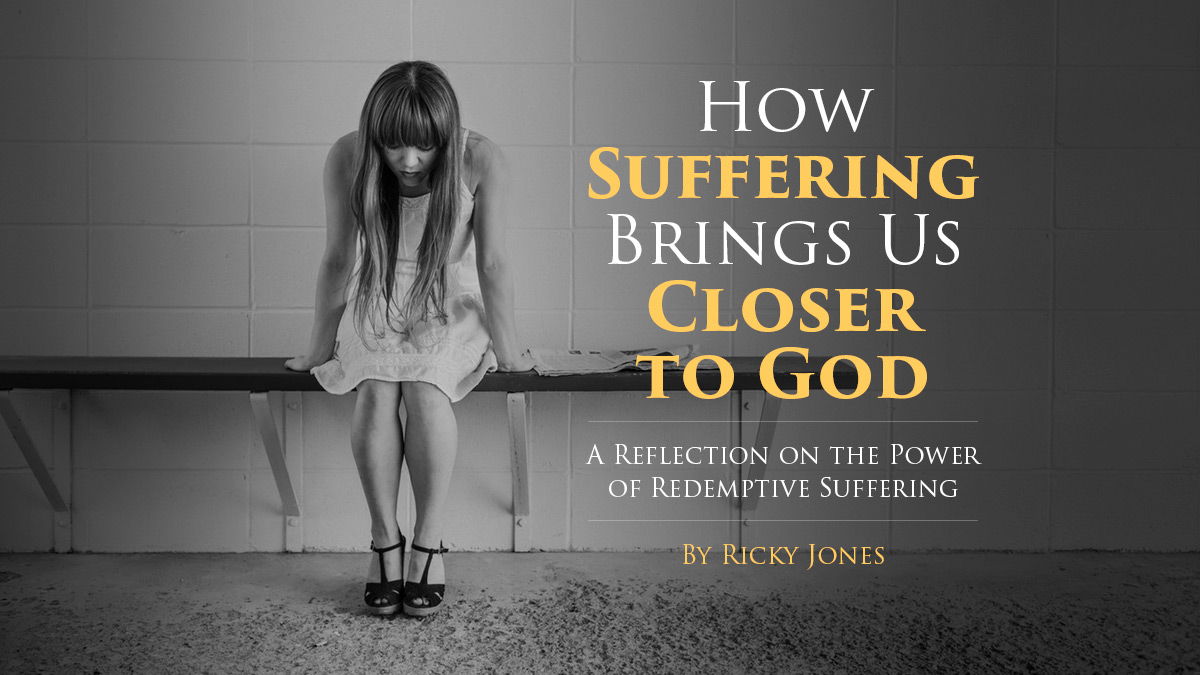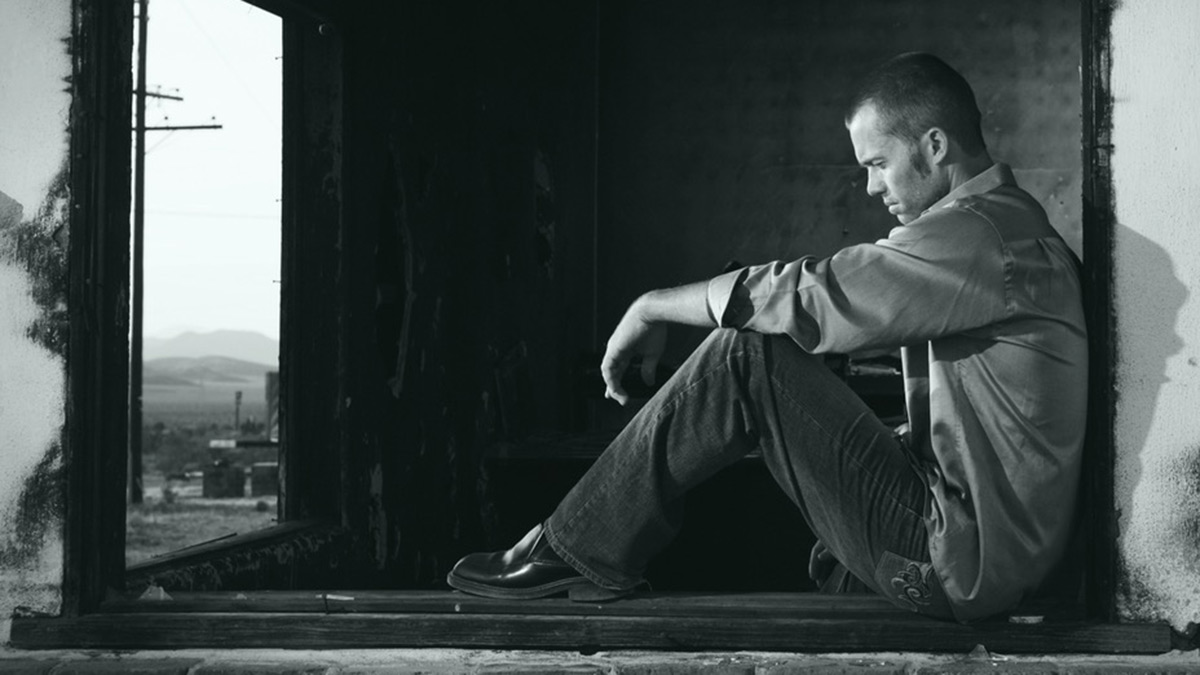
Why God Allows Suffering
Does God Punish?
There are many people who cling to the belief that God does not punish, but this depends on what you mean by punishment. If you are thinking of punishment as God watching down from a cloud in Heaven ready to rain down lightning bolts upon you at the first sign of sin, then of course God doesn’t punish, at least not in this way. A great deal of the suffering that we face in life is just the natural process of having to deal with the consequences of our actions.
Free will is a great gift, but it comes with great responsibility. God chose that instead of making us mindless robots or slaves that must do His bidding at every moment, He would rather make us in His image and likeness (Gn 1:26) giving us the amazing power to make rational decisions, the power to choose our own path. Whether we choose the right path or the wrong one, there are consequences.
When we follow God we are rewarded with the benefits of living in relationship with Him, His grace flows freely and generously into our lives. However, there are effects for turning away as well. Should you choose to rob a bank there are consequences, right? You will be hunted by the authorities. You will be caught and imprisoned. You will lose your rights as a citizen. Much will be taken away from you for trying to take away the property of others.
This type of suffering is not dealt out by God, but is a direct result of bad decisions that we will have to live with. Every action has a reaction. Even Newton saw this in his study of physics:
“To every action there is always opposed an equal reaction.”
Every decision has consequences: good or bad accordingly.
That being said, we can agree that there are some instances of suffering in the world that are difficult to reconcile with the idea of God being all good. But the people effected by war and terrorism aren’t necessarily the ones who made the bad decisions which have brought about their current plight. They suffer because others have made bad decisions. It is much more difficult to find purpose in this type of suffering.
The Discipline of a Father
So you must know in your heart that, even as a man disciplines his son, so the LORD, your God, disciplines you.
— Deuteronomy 8:5
So when it comes to the personal suffering that is usually a result of our bad choices, the consequences can most often be seen as discipline. It doesn’t always make it easier to go through and it sometimes we aren’t able to see it that way until after the fact. But the Bible is pretty clear on the idea that God is our Father and as any father He wants what’s best for us. He wants us to achieve our fullest potential. And if there is a need for us to learn a lesson, He’ll take advantage of our mistakes to help us grow. Not to make us writhe about in pain and suffering, but to show us a better way (1 Cor 12:31).
If we discerned ourselves, we would not be under judgment; but since we are judged by [the] Lord, we are being disciplined so that we may not be condemned along with the world.
— 1 Corinthians 11:32
God wants to see us at our best. No parent wants to see their children suffer, but sometimes they have to step back and allow their child to learn something from the situation or circumstances in which they find themselves, even if that means a little suffering. This doesn’t make them bad parents, in fact it makes them better parents.
Embracing Suffering as a Good
Sometimes a passive approach allows for the child to realize that there are consequences for their actions, and to face those consequences and grow through the process. Most children learn to hate their parents because of this, but later in life come to appreciate the fact that their parents allowed them to learn these important lessons.
The discipline of the LORD, my son, do not spurn; do not disdain his reproof; For whom the LORD loves he reproves, as a father, the son he favors.
— Proverbs 3:11-12
Only a parent who truly loves their child will discipline them, because suffering for the child means suffering for the parent. It hurts to watch your children go through a difficult time at any age, but the good parent loves their child enough to step back and let the lesson be learned. This is true discipline. It means having the ability to step in and save them at any moment, but actively choosing not to because the ultimate result of that suffering is worth the pain of the moment.
I admit, it is difficult to understand when you are the one suffering. In the midst of struggles and the storms of life, all one can think about is when will it end. One questions oneself. Why am I going through this? Why is this so hard? But when the suffering finally comes to an end, in retrospect the obvious benefit is had.
The Catholic Church teaches that in Christ suffering has value, a fact we have just proven. It is the lesson Jesus teaches us on the cross, the redemptive power of suffering. There is good in suffering, even in the death of Christ. So even in our own lives, in the difficulty, the struggle, the storms of life, we can find hope and light in the Fatherly discipline of God, learning not to “take it like a man”, but to see suffering as an opportunity for God to work in our lives, to teach us new lessons, to help us grow, and to make us holy.
Endure your trials as “discipline”; God treats you as sons. For what “son” is there whom his father does not discipline? If you are without discipline, in which all have shared, you are not sons but bastards. Besides this, we have had our earthly fathers to discipline us, and we respected them. Should we not [then] submit all the more to the Father of spirits and live? They disciplined us for a short time as seemed right to them, but he does so for our benefit, in order that we may share his holiness. At the time, all discipline seems a cause not for joy but for pain, yet later it brings the peaceful fruit of righteousness to those who are trained by it.
— Hebrews 12:7-11

Learning to Love Suffering
Suffering is not easy. That’s kind of the point. It’s difficult because only in difficult situations do we really grow. To suffer is to be challenged on some level. There are some people who suffer much more than others, and whether the suffering is physical, spiritual, emotional, or psychological, the purpose of that suffering should be seen as an opportunity for growth.
I always think about physical exercise and those of us who work out. In order to be in shape or to build muscle you have to exert a significant amount of physical strain on your body. It hurts, especially when you are just getting started. You will feel sore. For most people it’s not fun. But the results of the pain and difficulty are worth it.
“Our hope for you is firm, for we know that as you share in the sufferings, you also share in the encouragement.”
~ 2 Corinthians 1:7
Some Bibles translate the word encouragement as consolation which I think gives greater insight into the truth of this passge. What Paul is getting at is that suffering is not just God’s way of making our lives difficult so He can watch writhing about in pain. In fact, he’s actually saying that through our suffering our eyes are opened in a sense to be able to see God in a new light.
How Suffering Helps Us to See God
“Blessed are the clean of heart, for they will see God.
Matthew 5
Being “clean of heart” connotes holiness of life. So obviously when we give ourselves over to sin, it will become harder for us to “see God”. I’ve heard this concept explained like this. Picture God’s grace, like the rain. God is continually pouring out His grace, raining it down upon us. However, when we sin it is like we open an umbrella over our heads. The grace doesn’t stop raining down, but it is prevented from ever reaching us. Until the umbrella is put away, or until we are forgiven and absolved of our sin does the grace of God pour into our lives once again.
God doesn’t want us to suffer for sufferings sake, but so that we can better know Him. The saints knew this. In fact, many of them not only welcomed suffering, but desired it. That sounds crazy to us, but it makes sense once we are able to see suffering as an opportunity rather than a burden.

“I had to pass through many trials before reaching the haven of peace, before tasting the delicious fruits of perfect love and of complete abandonment to God’s will.”
~ St. Thérèse of Lisieux
It’s clear if we look at the example of Jesus’ suffering. He underwent the ultimate suffering all for the sake of you and I. But that wasn’t the end of it. He didn’t suffer to suffer. He wasn’t a masochist. His suffering was for our salvation, it showed us how God loves. His pain brought us closer to God.
It might be helpful for you to think about that next time you are going through a difficult time: How might God be providing me an opportunity to grow through this suffering?
Learning not only to accept suffering, but even more so to embrace it, to desire it, is to walk in the way of the saints. They were able to see suffering in a new light and to reap the benefits of it’s power.
From Afflictions to Affections
One of my favorite songs is How He Loves Us by the David Crowder Band. It speaks to the point that we’ve been exploring here today. Suffering and afflictions are unavoidable. They are inevitable. They are also necessary as part of life and especially when it comes to our relationship with God. Through our suffering we are opened up to a deeper understanding of God’s love for us and the difficulty of the suffering is overshadowed by the blessing of God’s grace in our lives.
“All of a sudden I am unaware of these afflictions eclipsed by glory. And I realize just how beautiful you are and great your affections are for me.”
~ David Crowder Band, ‘How He Loves Us’
It is a modern day reflection of what the psalmist says:
“You changed my mourning into dancing; you took off my sackcloth and clothed me with gladness.”
— Psalm 30:12
Question: Have you seen the power of redemptive suffering in your life?